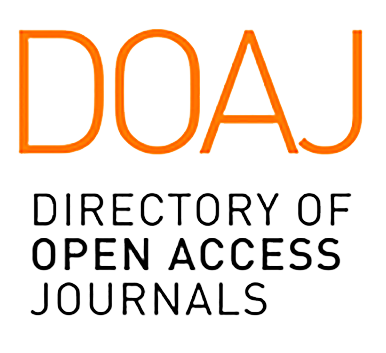Constitutional Transition in a Democratic State: A Critical View of the Omnibus Law Establishing Employment Copyright Law
DOI:
https://doi.org/10.15294/jllr.v5i4.1552Keywords:
constitutional transition, democratic state, omnibus lawAbstract
The debate regarding Omnibus Law as the main means for structuring legal regulations in Indonesia attracted a lot of public attention when the Omnibus Law method, which was previously little known in Indonesia as a country that adheres to the Continental European legal system, was used in the preparation of draft laws (RUU). How does the constitutional transition to the establishment of an omnibus law on copyright work in a democratic country? How do we review the constitutionality of the implementation of the Omnibus Law and the copyright mechanism in the formation of statutory regulations? This research uses the concept of normative descriptive research, or what can be called normative juridical research. With this method, law is interpreted as what is written in legislation (law in a book), or law is interpreted as a legal rule, which is a standard for appropriate behavior. The Omnibus Law method practiced in the common law system is interpreted as a (new) law that regulates various kinds of regulations to simplify the various laws that are still in force. Constitutionally, the legal position of the omnibus law concept has not been regulated in the legal system or in the laws and regulations in Indonesia. Law No. 11 of 2020 concerning Job Creation, which was formed using the Omnibus method, is considered to be constitutionally contradictory because it does not have clear objectives and formulation, both in terms of the standard of formation, the systematics of its creation, and the process of changing its substance.
References
Ahmad, Redi. Hukum Pembentukan Peraturan Perundang-Undangan. Jakarta: Sinar Grafika, 2018.
Al-Fatih, Sholahuddin, Muchamad Ali Safaat, Aan Eko Widiarto, Dhia Al Uyun, and Muhammad Nur. “The Hierarchical Model of Delegated Legislation in Indonesia.” Lex Scientia Law Review 7, no. 2 (November 9, 2023): 629–58. https://doi.org/10.15294/lesrev.v7i2.74651.
Alhakim, Abdurrakhman, and Egia Ginting. “Analisis Pembentukan Undang - Undang Cipta Kerja Pada Tahapan Perencanaan Dan Penyusunan Berdasarkan Undang - Undang Pembentukan Peraturan Perundang - Undangan.” CoMBInES - Conference on Management, Business, Innovation, Education and Social Sciences 1, no. 1 (March 26, 2021): 284–96. https://journal.uib.ac.id/index.php/combines/article/view/4454.
Anggono, Bayu Dwi, and Fahmi Ramadhan Firdaus. “Omnibus Law in Indonesia: A Comparison to the United States and Ireland.” Lentera Hukum 7, no. 3 (November 23, 2020): 319–36. https://doi.org/10.19184/ejlh.v7i3.19895.
Antari, Putu Eva Ditayani. “The Implementation of Omnibus Law in Indonesia Law Making Process on Philosophy Review.” De Jure: Jurnal Hukum Dan Syar’iah 14, no. 1 (January 1, 2022): 179–94. https://doi.org/10.18860/j-fsh.v14i1.15757.
Arifin, Saru. “Illiberal Tendencies in Indonesian Legislation: The Case of the Omnibus Law on Job Creation.” Theory and Practice of Legislation 9, no. 3 (January 1, 2021): 386–403. https://doi.org/10.1080/20508840.2021.1942374.
Aristoteles, Muhammad Umaruddin Syam, Tristiyanto, and Bambang Hermanto. “Implementation of Cosine Similarity Algorithm on Omnibus Law Drafting.” International Journal of Advanced Computer Science and Applications 15, no. 4 (January 1, 2024): 200–205. https://doi.org/10.14569/IJACSA.2024.0150420.
Astuti, Rini, Michelle Ann Miller, Andrew McGregor, M. Dedy Pratama Sukmara, Wiko Saputra, Sulistyanto, and David Taylor. “Making Illegality Visible: The Governance Dilemmas Created by Visualising Illegal Palm Oil Plantations in Central Kalimantan, Indonesia.” Land Use Policy 114 (March 1, 2022): 105942. https://doi.org/10.1016/j.landusepol.2021.105942.
Aulia, M. Zulfa. “Friedrich Carl von Savigny Tentang Hukum: Hukum Sebagai Manifestasi Jiwa Bangsa.” Undang: Jurnal Hukum 3, no. 1 (July 7, 2020): 201–36. https://doi.org/10.22437/UJH.3.1.201-236.
Azharil, Ahmad. “Problematika Penerapan Sistem Omnibus Law Ke Dalam Sistem Hukum Nasional Indonesia Melalui Undang-Undang No.11 Tahun 2020 Tentang Cipta Lapangan Kerja.” JOURNAL of LEGAL RESEARCH 3, no. 1 (January 20, 2021): 41–60. https://doi.org/10.15408/JLR.V3I1.19293.
Benazir Dewinagara, Trisya, I Gusti Ayu Ketut Rachmi Handayani, Hari Purwadi, and Corresponding Author. “The Omnibus Law Concept in the Job Creation Law and the Legal Consequences for Limited Liability Companies.” SASI 28, no. 2 (July 3, 2022): 323–35. https://doi.org/10.47268/sasi.v28i2.963.
Fadli, Muhammad. “PEMBENTUKAN UNDANG-UNDANG YANG MENGIKUTI PERKEMBANGAN MASYARAKAT.” Jurnal Legislasi Indonesia 15, no. 1 (2018). http://www.bphn.go.id/data/documents/na_ruu_revisi_uu_no._12_tahun___2011.pdf.
Fajar, Bobi Yusuf Noor, and Zaid Zaid. “A Critical Review on The Job Creation Omnibus Law-Forming Process.” Syiah Kuala Law Journal 5, no. 2 (2021): 195–211. https://doi.org/10.24815/sklj.v5i2.21605.
Fauzia, Ana, Fathul Hamdani, Rusdianto Rusdianto, and Muhammad Azimuddin Mohamed. “Implementation of the Omnibus Law Concept and Consolidated Texts: Amalgamation of the Common Law and Civil Law Legal Systems.” Journal of Law and Legal Reform 4, no. 2 (April 30, 2023): 235–54. https://doi.org/10.15294/jllr.v4i2.68256.
Febriansyah, Ferry Irawan. “KONSEP PEMBENTUKAN PERATURAN PERUNDANG-UNDANGAN DI INDONESIA.” Perspektif 21, no. 3 (September 30, 2016): 220–29. https://doi.org/10.30742/PERSPEKTIF.V21I3.586.
Fernando, Zico Junius, Jalan Wr Supratman, Kandang Limun, Kecamatan Muara, Bangka Hulu, Kota Bengkulu, Wiwit Pratiwi, et al. “OMNIBUS LAW SEBUAH PROBLEMATIK DAN PARADIGMA HUKUM DI INDONESIA.” AL IMARAH : JURNAL PEMERINTAHAN DAN POLITIK ISLAM 6, no. 1 (January 31, 2021): 90–103. https://doi.org/10.29300/IMR.V6I1.2557.
Huda, Muhammad Nurul, Suranto, Hammam, and Herdin Arie Ssaputra. “Muhammadiyah Constitution Jihad Movement: A Case Study of the Omnibus Law on Job Creation.” Ijtihad: Jurnal Wacana Hukum Islam Dan Kemanusiaan 21, no. 2 (January 1, 2021): 177–96. https://doi.org/10.18326/IJTIHAD.V21I2.177-196.
Ikhsan, Edy. “The Omnibus Law in Indonesia: Assessing Its Consequences on Environmental Sustainability and Land Rights.” Journal of Human Security 18, no. 2 (January 1, 2022): 47–53. https://doi.org/10.12924/johs2023.19010036.
Kartikasari, Hesty, and Agus Machfud Fauzi. “Penolakan Masyarakat Terhadap Pengesahan Omnibus Law Cipta Kerja Dalam Perspektif Sosiologi Hukum.” DOKTRINA: JOURNAL OF LAW 4, no. 1 (April 30, 2021): 39–52. https://doi.org/10.31289/DOKTRINA.V4I1.4482.
Marilang, Muammar Bakry, Tri Suhendra Arbani, Abdul Syatar, Muhammad Majdy Amiruddin, and Nurfaika Ishak. “Establishing Omnibus Law In Indonesia: Strict Liability In Environmental Law.” Journal of Legal, Ethical and Regulatory Issues 24, no. Special (January 1, 2021): 1–9.
Mertokusumo, Sudikno. Penemuan Hukum: Sebuah Pengantar. Liberty, 2000.
Mochtar, Zainal Arifin, and Idul Rishan. “Autocratic Legalism: The Making of Indonesian Omnibus Law.” Yustisia 11, no. 1 (April 1, 2022): 29–41. https://doi.org/10.20961/yustisia.v11i1.59296.
Nonet, Philippe, and Philip Selznick. Hukum Responsif, Pilihan Di Masa Transisi. Jakarta, 2003.
Purwanto, Muhammad Eko, and Efridani Lubis. “YUDICIAL REVIEW OMNIBUS LAW DALAM MELINDUNGI PEKERJA DAN MENGEMBANGKAN INVESTASI DI INDONESIA.” Veritas 8, no. 1 (January 1, 2023): 49–66. https://doi.org/10.34005/veritas.v8i1.1757.
Riyanto, Sigit. Kertas Kebijakan Catatan Kritis Dan Rekomendasi Terhadap RUU Cipta Kerja. Yogyakarta: Fakultas Hukum Universitas Gadjah Mada, 2020.
Sanders, Anna, Josi Khatarina, Rifqi Assegaf, Tessa Toumbourou, Heni Kurniasih, and Reni Suwarso. “The Omnibus Law on Job Creation and Its Potential Implications for Rural Youth and Future Farming in Indonesia.” Asia Pacific Viewpoint, 2024. https://doi.org/10.1111/apv.12408.
Sarjana, I. Made, Kadek Agus Sudiarawan, Laura Antoinette Medd, I. Putu Bimbisara Wimuna Raksita, and Bagus Hermanto. “OMNIBUS LAW EMPLOYMENT CLUSTER: IS IT A FORM OF LABOR EXPLOITATION IN THE INDONESIAN CONTEXT?” UUM Journal of Legal Studies 14, no. 1 (January 1, 2023): 57–88. https://doi.org/10.32890/uumjls2022.14.1.3.
Shalihah, Fithriatus. “Industrial Relations with Specific Time Work Agreements after the Decision of the Constitutional Court of the Republic of Indonesia Number 91/PUU-XVIII/2020 in The Perspective of Legal Justice.” Jurnal Hukum Novelty 13, no. 1 (January 1, 2022): 65–80. https://doi.org/10.26555/novelty.v13i1.a22545.
Sjaiful, Muh. “Problematika Normatif Jaminan Hak-Hak Pekerja Dalam Undang-Undang Nomor 11 Tahun 2020 Tentang Cipta Kerja.” Media Iuris 4, no. 1 (February 11, 2021): 37–60. https://doi.org/10.20473/MI.V4I1.22572.
sodikin, Sodikin sodikin. “PARADIGMA UNDANG-UNDANG DENGAN KONSEP OMNIBUS LAW BERKAITAN DENGAN NORMA HUKUM YANG BERLAKU DI INDONESIA.” Jurnal Rechts Vinding: Media Pembinaan Hukum Nasional 9, no. 1 (April 27, 2020): 143. https://doi.org/10.33331/RECHTSVINDING.V9I1.393.
Soekanto, Soerjono. Faktor-Faktor Yang Mempengaruhi Penegakan Hukum. Jakarta: Raja Grafindo Persada, 1983.
Sopiani, Sopiani, and Zainal Mubaraq. “POLITIK HUKUM PEMBENTUKAN PERATURAN PERUNDANG-UNDANGAN PASCA PERUBAHAN UNDANG-UNDANG NOMOR 12 TAHUN 2011 TENTANG PEMBENTUKAN PERATURAN PERUNDANG-UNDANGAN.” Jurnal Legislasi Indonesia 17, no. 2 (June 30, 2020): 146. https://doi.org/10.54629/JLI.V17I2.623.
Subadi, Aris, Azkar, Muhammad Nurkholis Majid, Arif Dwi Syafutra, Ema Utami, and Ainul Yaqin. “Sentiment Analysis of Public Opinion about the Omnibus Law on Twitter.” 2023 IEEE World AI IoT Congress, AIIoT 2023, January 1, 2023, 259–63. https://doi.org/10.1109/AIIoT58121.2023.10174420.
Sutan, Arissy Jorgi, Achmad Nurmandi, Dyah Mutiarin, and Salahudin Salahudin. “Using Social Media as Tools of Social Movement and Social Protest in Omnibus Law of Job Creation Bill Policy-Making Process in Indonesia.” Advances in Intelligent Systems and Computing 1352 (January 1, 2021): 261–74. https://doi.org/10.1007/978-3-030-71782-7_24.
Syauqi, and Habibullah. “Implikasi Undang-Undang Republik Indonesia Nomor 23 Tahun 2014 Tentang Pemerintahan Daerah Dalam Penyelenggaraan Kesejahteraan Sosial.” Sosio Informa, 2016, 52851. https://www.neliti.com/id/publications/52851/.
Trinanda, Desip, Abrar, Muhammad Taufik, Fadhilatul Husni, Diah Febri Utami, and Fauzi Yati. “Maṣlahah and Justice in the Formulation of the Law: A Critic on the Formulation of Job Creation Law.” Juris: Jurnal Ilmiah Syariah 21, no. 1 (June 1, 2022): 53–66. https://doi.org/10.31958/juris.v21i1.4718.
Downloads
Published
Article ID
1552Issue
Section
License
Copyright (c) 2024 Arif Rahman, Ahmad Zaini, Hajani Hajani, Rendi Haerudin, Ahmad Jamaludin Jambunanda (Author)

This work is licensed under a Creative Commons Attribution-NonCommercial-ShareAlike 4.0 International License.
All writings published in this journal are personal views of the authors and do not represent the views of this journal and the author's affiliated institutions. Author(s) retain copyrights under a Creative Commons Attribution-NonCommercial-ShareAlike 4.0 International (CC BY-NC-SA 4.0).









